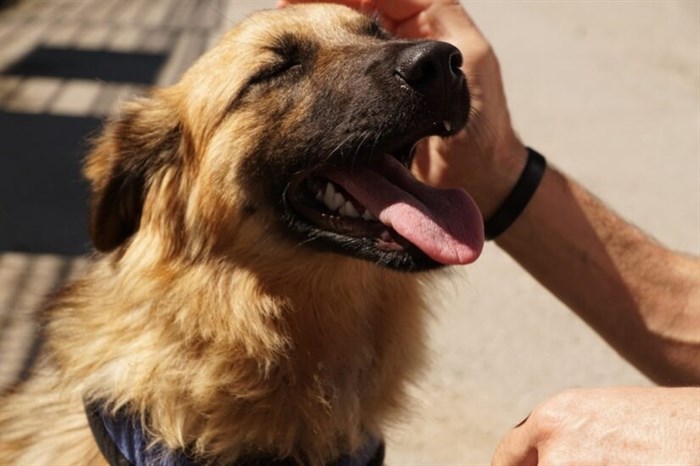
There are lots of toxins to beware of for your pooch this time of year.
Image Credit: SUBMITTED/BCSPCA
July 04, 2021 - 12:43 PM
Summertime activities, ever so grand, also bring new opportunities to expose pets to harmful and dangerous substances.
The BCSPCA said there are a number of items people often use during the summer, which can be toxic for furry friends. Here is the list they offer for what's most dangerous and most common.
Sunscreen
If you are considering applying sunscreen to your pet, talk to your veterinarian first. If you do decide to put sunscreen on your dog, it’s important that you only use formulas that are specifically intended as sunscreen for dogs.
They should not contain zinc oxide or para-aminobenzoic acid (PABA), as these ingredients are toxic to dogs if ingested.
Plants
Take advantage of non-toxic plant options when planting a garden.
Bulbs from lilies, daffodils and tulips, contain a variety of toxic chemicals. Dogs and cats can get into bags of unplanted bulbs or dig up and eat freshly planted bulbs, especially when tasty blood or bone meal fertilizers have been used.
Symptoms range from vomiting and diarrhea to seizures. In severe cases, ingestion can lead to death.
Fertilizers and herbicides
The use of chemical fertilizers, herbicides, insecticides, and pesticides can be harmful to your pet. Not only can they make a cat or dog sick, but one recent study showed that dogs exposed to lawn care chemicals can have a higher bladder cancer risk.
To be on the safe side use organic, pet-friendly alternatives. There are a number of different options available to purchase or DIY weed killers to make yourself. If you have any questions about which products to use, consult with your veterinarian.
Water sources
Hiking with your dog in the summer is something most of us in B.C. look forward to. However, drinking from outdoor sources of water can be harmful for your pooch. Generally speaking, it is safe to let dogs drink out of flowing water and streams, but not stagnant puddles or pools of water, which can be contaminated with various microscopic organisms that can make your dog sick.
Saltwater is also toxic for your dog when ingested. For some dogs, a few mouthfuls of ocean water might give them diarrhea. Consuming large amounts of salt water can even be fatal.
This is why you should bring along fresh water for your dog to keep hydrated.
Consider bringing a water filtration device to filter the water that you’ll come across. If you notice your dog drinking from the ocean or a lake, call them over to you and reward them for leaving the water with a treat and giving them a clean water source to drink from instead. If you notice that your dog seems sick after drinking from an unknown water source, call your veterinarian to schedule a check-up.
Bugs
Summer is also tick season. When an issue arises like flea or ticks, there may be a temptation to give the same prescription or over-the-counter flea or tick medication that you’ve purchased for their dog to their cat. Using any flea or tick medications meant for dogs on cats (or animals other than dogs) is dangerous and can result in sickness, permanent damage or even death.”
If a cat is exposed to a dog’s oral or topical flea medication, the pet guardian should seek veterinary help immediately and bring the medication with them to the vet.
Fireworks
Fireworks are dangerous for pets in a number of ways. First, the loudness of the fireworks can cause them much stress and anxiety.
Second, if ingested, fireworks can be toxic to your pets. When ingested, pets can develop gastrointestinal issues like vomiting, a painful abdomen, and bloody diarrhea. It can also cause seizures and kidney failure. Additionally, a lit firecracker can cause thermal or chemical burns on your pet’s face or paws. It’s best to keep your pet far away from any firework displays. Keep them secure at home with a toy, and ensure all doors and windows are closed to prevent them from coming close to any potential firecracker hazards.
Picnic food
Picnics are a favourite pastime for most, but unfortunately, some of the most common and delicious foods are poisonous for your dog.
Here are a few foods to avoid:
-
Cooked bones, like ribs or pork chops, can easily splinter when chewed by your dog; the splinters can cause damage when chewed and/or swallowed
-
Corn of the cob can get lodged in the small intestine, and if it’s not removed surgically, can prove fatal to your dog
-
Grapes contain a toxin that can cause severe liver damage and kidney failure
-
Alcohol can cause intoxication, lack of coordination, poor breathing, abnormal acidity and potentially even a coma or death.
News from © iNFOnews, 2021